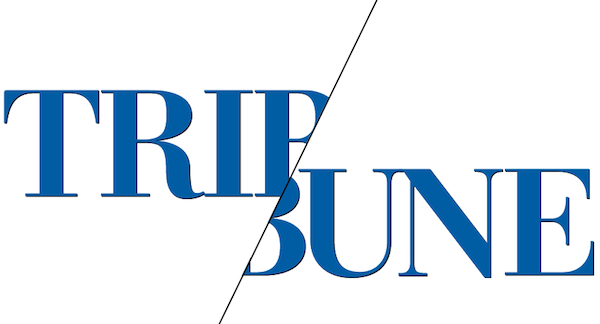
Snowden’s defenders and detractors: U.S. National Security Agency leaker Edward Snowden’s attempts to find safe harbor have stretched into their fifth week, with three Latin American countries — Venezuela, Nicaragua, and Bolivia — formally offering him asylum. Despite some conflicting reports, Snowden hasn’t yet picked Venezuela, though The Guardian’s Glenn Greenwald, one of the journalists he leaked to, suspects he will. Hilary Sargent has a good summary of Snowden’s options at this point, and the Russian TV network RT has some useful running updates on the situation.
Two news organizations — Der Spiegel and The Guardian — published parts of interviews with Snowden from just before he revealed himself as the NSA leaker. The free speech site Cryptome has the fullest version of Der Spiegel’s interview, while GigaOM’s Mathew Ingram noted that Snowden told The Guardian the NSA has direct access to tech companies’ servers, something those companies have denied. (Days later, Greenwald reported that Microsoft has worked closely with the government to give it access.) Snowden also gave another interview to Greenwald in which he denied giving documents to Russia and China.
In The Washington Post, Pentagon Papers leaker Daniel Ellsberg defended Snowden’s decision to flee the U.S., arguing that the way the government treats these cases has changed substantially since Ellsberg decided in 1971 to stay and stand trial in the U.S. Gawker’s Hamilton Nolan echoed the point, saying Snowden doesn’t owe anything to the moralists who would have him turn himself in. (Reuters’ Jack Shafer did advise future leakers not to go solo as Snowden did, however.)
Snowden enjoyed support from other corners as well: A new poll showed that a majority of Americans see him as a whistleblower rather than a traitor, while NYU’s Jay Rosen chronicled the gains in public knowledge that have come out of the aftermath of Snowden’s leak. Snowden’s personal story isn’t as important as that of his revelations, Rosen said, but it is relevant. And the Boston Review’s Archon Fung argued that the Snowden affair is an indictment not of Snowden himself, but of broken governmental institutions and a compliant American press.
There was one very prominent critic of Snowden’s (and Greenwald’s, and WikiLeaks’): The Washington Post’s Walter Pincus, who wrote a column questioning whether WikiLeaks was the organization directing Snowden to get documents from the NSA, connecting Snowden with journalists, and generally masterminding the entire affair. Greenwald fired back with a list of inaccuracies in the story, then questioned why a correction hadn’t been posted after Pincus had privately acknowledged the errors to him. Talking to The Post’s Erik Wemple, Pincus conceded a few points but defended a few others, and The Post finally corrected the column Wednesday, though Mathew Ingram chastised the paper for how long it took.

Running away from print, toward TV: After months of speculation about Tribune Co. selling off its newspapers, the company announced this week it will split the papers off into a separate company. Tribune’s eight newspapers, led by the Chicago Tribune, Los Angeles Times, and Baltimore Sun, will become Tribune Publishing Co., with its broadcasting assets, including its 42 local TV stations and the cable channel WGN America, remaining part of Tribune proper.
The Chicago Tribune has the basics of the split, while The New York Times put the move into context, explaining that it’s meant to avoid some taxes and it’s part of a larger quarantining of print by major media companies, such as News Corp. and Time Warner. Meanwhile, the people everyone’s talking about as a potential buyer for Tribune Co.’s newspapers, the Koch brothers, said a bid was “possible.”
Here at the Lab, Ken Doctor wrote a strong analysis of the move: Tribune Co., he said, still plans to sell the papers, and will keep all of its reliably profitable assets under Tribune Co. flag. The main goal: “make sure the newspaper assets don’t muddy the big broadcast play, and set the clock to do that. Chart the path. Buy some time. Hope for the best.” It’s the same strategy laid out by industry analyst Alan Mutter, who explained why media companies are cutting and running on print. As Doctor put it, “Metro newspaper companies are finding they are no longer creatures of the market.”
The other side of this retreat is a move deeper into TV, as both Tribune and Gannett have recently bought substantial local TV properties. Poynter’s Rick Edmonds gave some good background on the newfound attractiveness of TV stations. The New York Times’ Brian Stelter explained why swing-state stations — with their political advertising prowess — have become especially hot properties, and The Times’ David Carr issued a caution about their cost-cutting and revenue-declining downsides.
Mutter was similarly wary: In a pair of posts, he laid out the reason for the TV grab (it’s simply been a more reliably profitable business than print) and warned that as smart TV and multiplatform viewing rise, the local TV industry could collapse as newspapers did.

A collusion ruling on ebooks: A U.S. federal judge ruled this week that Apple colluded with five publishing giants to raise ebook prices as a way to break up Amazon’s dominance in that market. Reuters and The New York Times have good explanations of the case and its possible fallout, while paidContent Laura Hazard Owen has a shorter primer, including a note that consumers aren’t likely to see any change in ebook prices.
Jon Brodkin of Ars Technica wrote a more thorough explanation of the judge’s rationale in his ruling: The central aspect was a clause in Apple’s contracts with publishers that didn’t allow them to sell ebooks for a cheaper price than Apple’s, forcing Amazon to raise its prices and the publishers to adopt a different selling model (the agency model). John Gruber at Daring Fireball also pointed out that Steve Jobs’ 2010 statement to All Things D’s Kara Swisher was cited by the judge as a key piece of evidence of Apple’s intentions.
The Wall Street Journal’s Jacob Gershman outlined the road ahead for Apple after the decision, and All Things D’s John Paczkowski talked to legal scholars about why Apple’s appeal will be difficult. Still, several others said that the villain in this case may not have been Apple, but the publishers. Forbes’ Jeff Bercovici talked to a legal expert who argued that it was the publishers who were conspiring to raise prices even further, with Apple successfully getting them to institute price caps.
At The Guardian, Dan Gillmor detailed how publishers’ greed had led him to give up on ebooks, also noting that the publishers put themselves at Apple and Amazon’s mercy with their obsession with digital rights management. GigaOM’s Mathew Ingram expanded on that point, arguing that their insistence on DRM has ultimately hurt them. “How much larger could the ebook market potentially be if publishers hadn’t built those DRM walls around their content and given Amazon and Apple the only keys to unlock them?” he wrote.
 CNN and tabloid journalism: Between Egypt and Syria and Moscow and Austin, there’s been no shortage of news going on over the past few weeks. But CNN has been rather conspicuous in its singular focus on the trial of George Zimmerman, the man charged with murdering 17-year-old Trayvon Martin last year. The coverage has earned plenty of eye-rolling on Twitter and elsewhere, but Reuters’ Jack Shafer defended it, arguing that news orgs have been appeasing the public’s appetite for sensationalist crime stories for at least a century, and besides, that CNN’s trial coverage is actually pretty educational.
CNN and tabloid journalism: Between Egypt and Syria and Moscow and Austin, there’s been no shortage of news going on over the past few weeks. But CNN has been rather conspicuous in its singular focus on the trial of George Zimmerman, the man charged with murdering 17-year-old Trayvon Martin last year. The coverage has earned plenty of eye-rolling on Twitter and elsewhere, but Reuters’ Jack Shafer defended it, arguing that news orgs have been appeasing the public’s appetite for sensationalist crime stories for at least a century, and besides, that CNN’s trial coverage is actually pretty educational.
One of CNN’s most regular critics, NYU’s Jay Rosen, announced that he was done scrutinizing the network, saying that no one in journalism cares that CNN is now essentially tabloid TV, and by now, neither does he. Several people seconded his points: At Gawker, former CNN executive Sid Bedingfield argued that CNN has lapsed into a “Team Zimmerman vs. Team Trayvon” entertainment-TV approach, rather than anything resembling responsible journalism. Joshua Keating of Foreign Policy said CNN shouldn’t be thinking of foreign stories as eat-your-vegetables material. And The New Republic’s Laura Bennett said it’s not just that they’re doing tabloid journalism, but that they’re not even making it interesting.
Inside Cable News, however, urged Rosen not to give up on CNN yet, calling the Zimmerman trial an outlier. And Adweek’s Sam Thielman wrote a rosy report about the optimism at CNN regarding the financial fruit borne from the network’s shift from the political to the personal — which is more or less why Rosen is giving on CNN in the first place.
Reading roundup: Several other stories to watch this week:
— The trial of WikiLeaks source Bradley Manning continued this week as the defense finished its case, and one defense witness drew particular attention: Harvard law professor Yochai Benkler, who testified that the news media had generally portrayed WikiLeaks as a legitimate journalistic organization before Manning’s leaks were published, when that image flipped to an enemy of the state. You can read Benkler’s testimony in two posts (starting on page 15 of the first). Both Mathew Ingram of GigaOM and Jeff Jarvis of The Guardian wrote on Benkler’s testimony about the importance of determining who is considered a journalist.
— A couple of developments this week in response to the tape released last week in which News Corp.’s Rupert Murdoch acknowledged knowing of journalists’ bribes to public officials: Police want the tape as part of their investigation into the bribes, and he will testify again to a parliamentary committee about the phone-hacking scandal.
— In the midst of its political unrest, Egypt’s new leaders are targeting the news media in their efforts to suppress dissent, shutting down TV stations and arresting journalists. They also kicked Al Jazeera out of a press conference, as other journalists from Al Jazeera resigned in protest of biased coverage in Egypt.
— A Gallup poll found that despite the continued growth of the Internet as a news source, TV still serves as Americans’ top source of news. PaidContent’s Mathew Ingram had more details on the poll and especially the diminishing role of print it revealed.
— Finally, a few in-depth looks at several aspects of the state of journalism: The J-Lab published a wide-ranging report on local public broadcasting, the Lab ran a case study from Dan Kennedy in locally owned for-profit community journalism, and The Atlantic’s Riva Gold wrote a incisive analysis on the financial factors contributing to the recent decline in newsroom diversity.
Photo of Snowden protester by Steve Rhodes used under a Creative Commons license.